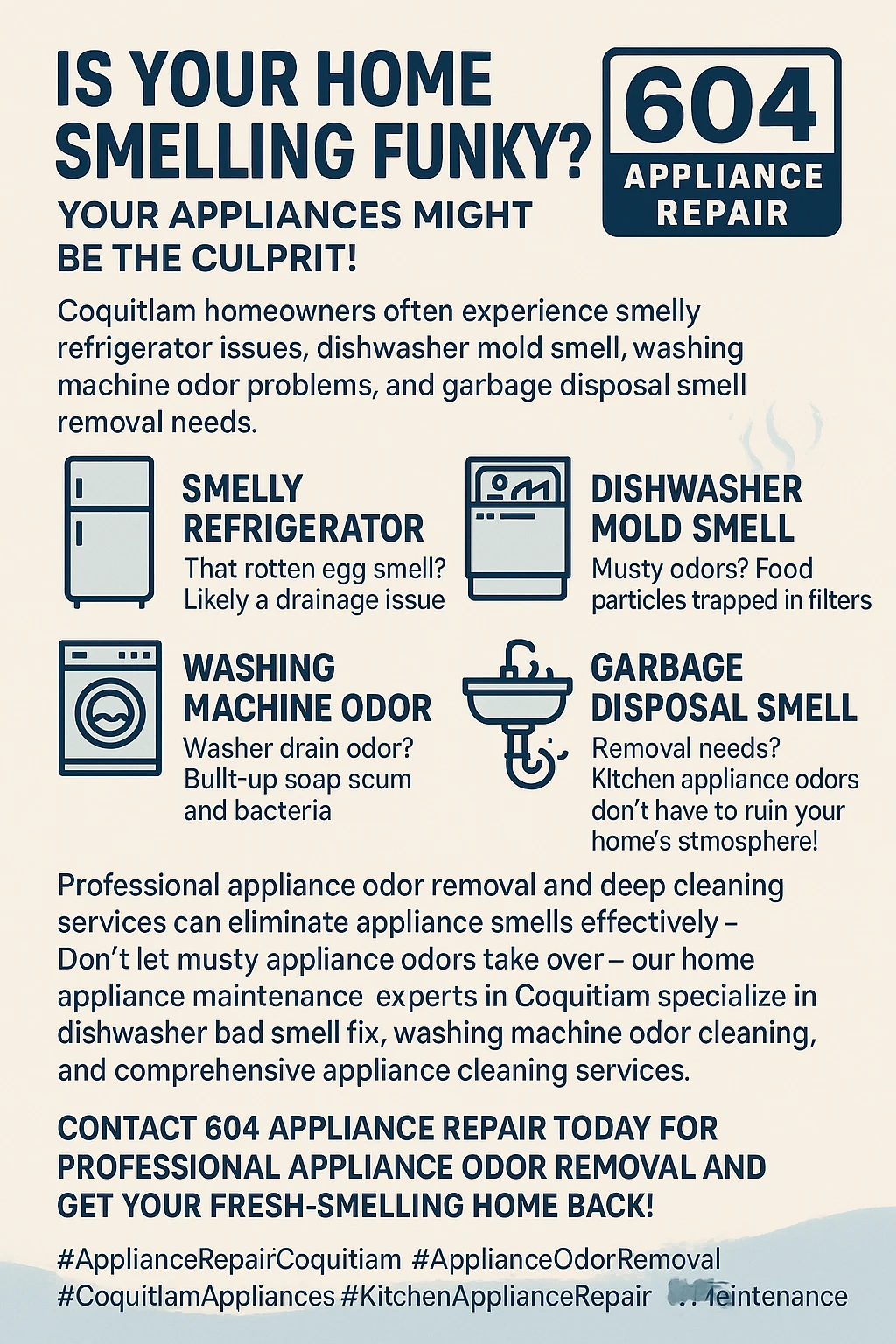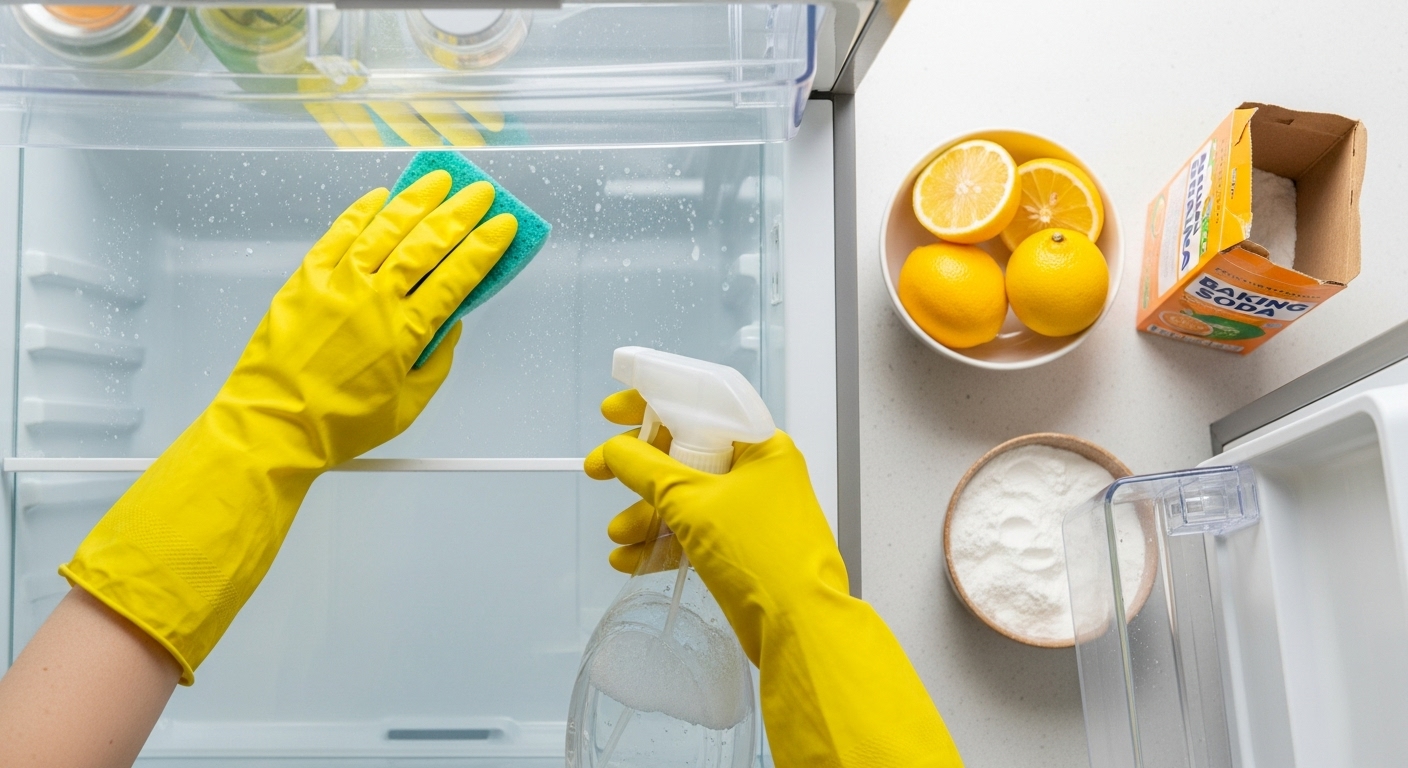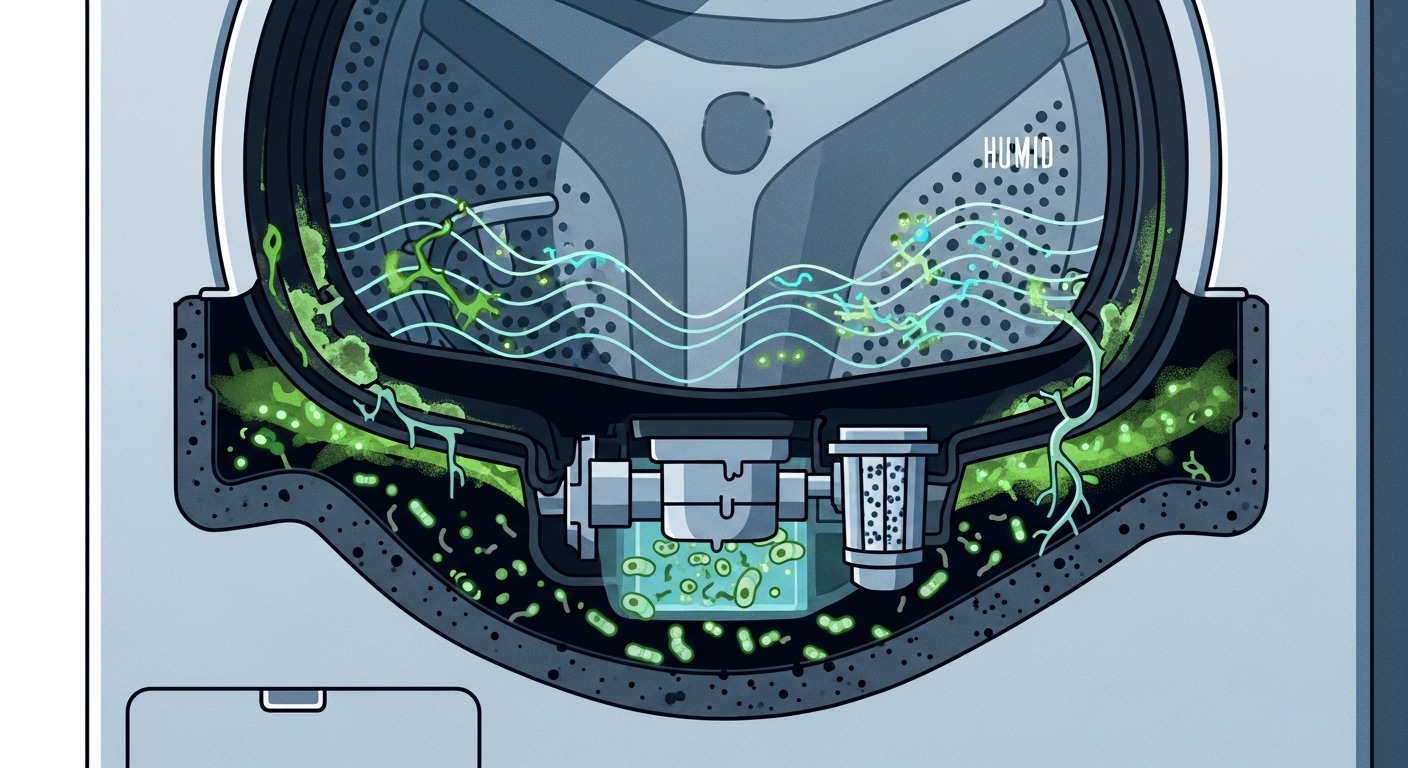
Why Your Appliances Are Making Your Home Smell Bad: A Coquitlam Guide to Identifying and Eliminating Odors from Refrigerators, Dishwashers, Washing Machines, and Garbage Disposals
Dealing with mysterious funky smells wafting from your kitchen appliances? You’re not alone – these odor culprits are more common than you think, and we’ve got the inside scoop on tracking down the source and banishing those unpleasant aromas for good!
Picture this: You walk into your kitchen on a lazy Sunday morning, ready to grab your coffee, and BAM – you’re hit with this weird, musty smell that makes you wrinkle your nose like you just walked past a gym locker room. Been there, done that, got the stinky t-shirt! Trust me, I’ve spent way too many weekends playing detective with household odors, and let me tell you, your appliances are basically like that friend who looks totally put-together on the outside but has some seriously questionable stuff going on behind closed doors.
Living in Coquitlam adds its own special twist to the appliance odor game. Our gorgeous coastal climate might be perfect for hiking and patio hangs, but that same humidity that makes our gardens so lush? Yeah, it’s also creating the perfect storm for mold, mildew, and bacterial parties in our appliances. Plus, with our mix of older character homes and newer builds, we’re dealing with everything from vintage appliances that have seen some things to high-efficiency models that seal in moisture like nobody’s business.
The thing is, most of these smelly situations are totally fixable with the right know-how and maybe some elbow grease. Whether you’re dealing with a fridge that smells like something died in there, a dishwasher that’s giving off serious swamp vibes, or a washing machine that’s making your clean clothes smell worse than when they went in, we’re going to break down exactly what’s happening and how to fix it. Because nobody should have to hold their breath every time they open an appliance!
Key Outtakes:
- Refrigerator odors typically stem from spoiled food, bacteria buildup, and clogged drain systems that require immediate cleaning and maintenance attention
- Dishwasher smells are primarily caused by clogged filters, food debris accumulation, and poor drainage that can be resolved through regular deep cleaning cycles
- Washing machine odors develop from mold growth, detergent residue, and trapped moisture, especially problematic in Coquitlam’s humid climate conditions
- Garbage disposal smells result from grease buildup and food particles that respond well to natural cleaning solutions and proper waste management practices
- Professional appliance cleaning services become necessary when DIY methods fail or when chemical odors indicate potential component failures requiring expert diagnosis

Understanding the Root Causes of Appliance Odor Problems
Before we dive into the nitty-gritty of each appliance, let’s talk about why these smell situations happen in the first place. Most appliance odors boil down to three main culprits: bacteria, mold, and mechanical failures that create the perfect environment for nastiness to thrive. Think of your appliances like mini ecosystems where moisture, heat, and organic matter create either a balanced, fresh environment or a total disaster zone.
In Coquitlam, our coastal climate plays a starring role in this drama. The humidity levels that make our summers so comfortable also mean that moisture lingers longer in enclosed spaces like appliance interiors. This creates ideal breeding conditions for mold and bacteria that wouldn’t be as problematic in drier climates.  It’s like our appliances are constantly dealing with a low-level moisture challenge that requires more vigilant maintenance than you’d need in, say, Calgary or Phoenix.
It’s like our appliances are constantly dealing with a low-level moisture challenge that requires more vigilant maintenance than you’d need in, say, Calgary or Phoenix.
The sealed nature of modern appliances makes this even trickier. While energy-efficient seals keep the cold in your fridge and prevent water leaks in your dishwasher, they also trap odors and moisture more effectively than older, leakier models. This means that when something starts to go funky, it can get really funky, really fast. Understanding this helps explain why that slightly off smell can turn into a full-blown olfactory assault seemingly overnight.
Another factor that many Coquitlam homeowners don’t consider is how our local water quality affects appliance odors. Depending on your neighborhood, you might be dealing with harder or softer water that affects how detergents work, how minerals build up in your appliances, and how effectively cleaning cycles actually clean. This variability means that maintenance schedules that work great for your friend across town might not be quite right for your setup.
Finally, there’s the seasonal component that’s unique to our area. Those cozy, damp winter months create different challenges than our dry summer periods. Appliances that seem fine in July might develop issues by November, not because they’re broken, but because the environmental conditions have shifted enough to tip the balance from fresh to funky.
Refrigerator Odors: When Your Food Storage Goes Rogue
Moving from the general to the specific, let’s tackle the big guy first – your refrigerator. This appliance is basically running 24/7, dealing with everything from yesterday’s leftovers to that mysterious container that’s been hiding behind the milk for who knows how long. When refrigerator odors strike, they can make your entire kitchen smell like a science experiment gone wrong.
The most common refrigerator smells are actually pretty straightforward to diagnose and fix. That sour, rotten smell? Yeah, that’s usually spoiled food, bacteria buildup, or both having a party in your crisper drawers or on those shelves you never quite clean properly. Bacteria, mold, food spills and odors, expired food items and leaking containers can all contribute to these unpleasant aromas that seem to multiply when you’re not looking.
But here’s where it gets interesting – and a little scary. If your fridge smells like chemicals, nail polish remover, or has that weird sweet smell that makes you think of cleaning products, you might be dealing with a refrigerant leak. This isn’t a DIY situation, folks. These chemical odors can indicate serious mechanical problems that need professional attention ASAP. I learned this the hard way when I spent weeks thinking my fridge just needed a deep clean, when actually it needed a repair tech who could handle refrigerant issues safely.
For the standard funky food smells, the solution is pretty straightforward but requires some commitment. First, you need to channel your inner detective and track down the source. This means emptying everything out, checking expiration dates, and being ruthless about tossing anything questionable. Pro tip: if you can’t remember when you bought it, or if you’re asking yourself “is this still good?” – it’s not. Trust your nose and your instincts here.
Once you’ve cleared out the obvious culprits, it’s deep cleaning time. Remove all the shelves and drawers that you can and wash them with warm, soapy water. For the interior, a mixture of baking soda and warm water works wonders because baking soda actually neutralizes odors rather than just masking them. Pay special attention to the drip tray and any drainage areas, because these spots are like odor magnets that most people forget to clean.

After everything is clean and dry, placing a box of baking soda on one of the shelves can help absorb and eliminate remaining odors while you restock. But here’s the thing – prevention is so much easier than treatment. Set a monthly reminder to do a fridge audit, wipe down shelves, and replace that baking soda box. Your future self will thank you when you’re not dealing with mystery smells at 7 AM on a Monday.
Dishwasher Smells: When Your Clean Machine Gets Dirty
Now let’s talk about one of the most frustrating appliance odor situations – when your dishwasher, the machine that’s supposed to clean things, starts smelling like a swamp. This is especially maddening because you expect clean, fresh-smelling dishes, not plates that smell worse after washing than they did going in.

